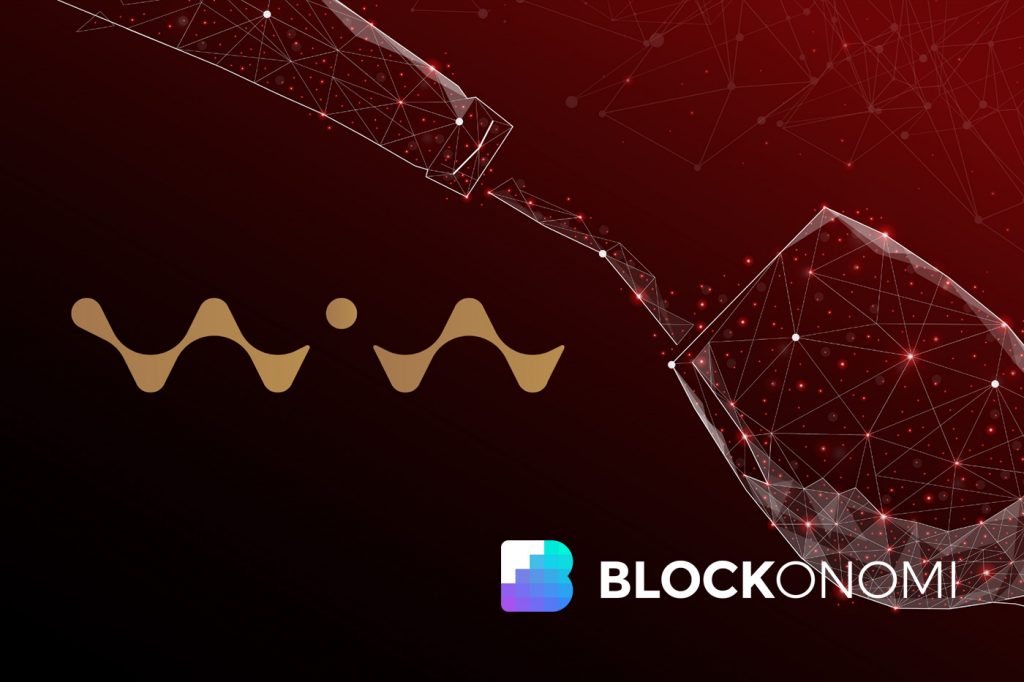WiV understands disadvantages of the old-school financing techniques since its been investing in the wine industry for decades.
Tommy Nordam Jensen and Håkon Harberg, based in Norway, launched WiV in 2018 to address a financing problem the wine industry faces, and is working to modernize the wine ecosystem.
Jensen and Harberg developed an innovative approach to wine investing. WiV is a blockchain-based platform opening the doors to a broad range of new business opportunities.
WiV NFTs: Supercharging Wine as an Investment
Time has proven that these breakthrough technologies already transformed other traditional investment industries like art, real estate, gold, etc. WiV is gradually turning the outdated financial system for wineries and wine investors obsolete.
The WiV platform creates a digital, immutable, reliable counterpart for vineyards’ physical wine using blockchain-based tokens.
Because of its solid background, the team at WiV enjoys credibility and managed to attract investors of all backgrounds obtaining $1.5M+ on a private initial sale back in 2018.
The known unique capabilities of blockchain was itself key to gain trusted investors: tamper-proof identification markers that guarantee ownership to the token holder, on a traceable decentralized public domain platform, was too good to pass by.
Those investors obtained ownership of fine wines stored in bonded warehouses, but mainly valued the ability to trade their assets at a fraction of the cost and time it required before.
Fine wine is a completely tradeable asset, and provenance protection is critical. Provenance is the only method to show a wine’s genuine value without opening the bottle.
With the classic trading rulebook, many wine trades sometimes slow to a halt because of the tedious manual review of paper certificates at every step of the process.
WiV aims to become THE source for Wine collection on the blockchain, and in all Metaverses.

A Little Background on the Wine Industry
Due to the nature of the industry, vineyard owners have historically dealt with recurrent difficulties to finance their operation season after season.
The classic process, though useful, is also responsible for disadvantages that slow down business development. Each season vine owners borrow money for infrastructure to grow and cultivate the vines, to then harvest and finally make the wine.
This process needs time and resources. Vine owners don’t see revenue sometimes months or even years after the wine is being commercialized.
Vineyard owners necessarily need to have a strong financial backbone to overcome this ‘grace period’ that for worse involves tedious paperwork, certifications, approvals, audits and uncertainty, season after season.
WiV: The Application Layer (NFTs and DeFi) for Wine
WiV operates as a link between vineyards and investors, providing financial assistance to vineyards while also attracting investment through collateral. This will relieve vineyards of the time-consuming, labor-intensive, and risky procedure of obtaining financing each season.
Vineyards can save money by using a more efficient process.
The more stable approach to obtaining funding much earlier in the winemaking process will allow vineyards to create new and exciting products that were previously impossible due to time and funding constraints.
Investors buy and hold the NFTs issued by vineyards for bottles and cases of fine wine. Then they can trade these assets globally with higher liquidity generating faster sales with low transaction costs.
The creation of the WiV platform allows new investors to enter the industry, who previously lacked access or the expertise, or both, to invest in fine wine.
It also allows wineries all over the world to join the platform and sell their product(s) to anyone, anywhere in the world, in a way that has never been possible before with a tangible product.
One of WiV’s most important values is its ability to build trust.
This ability can take many forms, and here are some of the key ones:
- the NFT that guarantees there is only one (and only one) owner of the represented bottle or case
- the “chain of custody” assurance provided by NFTs throughout the manufacturing process
- the assurance that the physical wine is managed by professionally maintained and insured wine vaults
With that trust, this concept enables consumers to use their abilities as investors to purchase, sell, and trade wine on a global scale, with unprecedented transparency and simplicity.
The process starts with the production of unique assets (physical product) to which a unique token is assigned (NFT), linking the digital and physical forms of the object.
The physical assets are kept in a bonded facility, but the digital token can follow the investor around and be sold whenever they choose.
Furthermore, these immutable agreements may be made internationally, reliably, and confidently thanks to another blockchain kely feature: Smart Contracts.
The smart contracts are simply designed to take advantage of the crypto-based characteristics of immutability. This enables a strong contract between the buyer and seller of the NFTs and the physical wine they represent.
$WIVA: The Wine Ecosystem Token
The WiV ecosystem is supported by the $WIVA coin. As wine is converted into currency via the WiV NFT, $WIVA will be used for investments and overall transactions (like fees).
Members of the community can earn $WIVA by doing things like becoming an operator, producing ecosystem concepts or content, trading WiV NFTs, bringing on partners, and yield farming for lending and liquidity pools.
Within the ecosystem, $WIVA can be used to buy WiV NFT tokens, as a currency to buy or invest in WiV, to buy fine wine, to invest in alt-investment pools, to pay peer-to-peer transactions, and for collateral loans.
Because the platform will support third-party integration soon, with time $WIVA will be utilized for a variety of transactions.
Attracting Wine Producers and DeFi Investors
The core players within the wine ecosystem for Wiv are the producers, the DeFi investors, and the Wine merchants and trade-investors.
WiV platform bases its strength in its bold token and its existing network of ambassadors and associations, to leverage the founders’ reputation as wine investing specialists.
Wine producers, DeFi investors, wine merchants, and investors who are seeking for innovative methods to approach this market are familiar with the team because they have achieved so many firsts in the NFT and wine industries.
Some of these are being the first physical NFT on Opensea, on Arkane/Venly platforms.
WiV is the first to sell physical wine NFTs globally, the first to tokenize physical assets on Polygon, first to create a physical backed NFT across many blockchains and finally the first to create an assetized wine on the blockchain.
Existing wine dealers and wholesalers will be able to use WiV’s platform as a brand-agnostic or white-label solution, allowing them to take advantage of features such as speed, security, and cheap prices.
To enhance trust WiV’s team for auditing and compliance includes the following groups:
- European Commission (https://ec.europa.eu/info/index_en)
- Web3 Foundation Grants Program(https://web3.foundation/grants/)
- EY (https://www.ey.com/nl_nl)
- Innovation Norway (https://www.innovasjonnorge.no)
- Wine Owners (https://www.wineowners.com/)
- The Research Council of Norway (https://www.forskningsradet.no)
WiV’s team is achieving the milestones towards the goals. During this current Q2 2021, WiV is launching its Public Sale DEX.
During the third quarter this year, WiV will launch the NFTs offer for funds raising. Finally, by Q4 this year both DeFi Loan & Metaverse features will be launched.
The coming 2022 will feature WiV’s Multi-Chain Interface and the launch of Global Wine DeFi platform (Metaverse).
To learn more about WiV, please click here. It is a unique blockchain project that has blue-sky potential in a market that is both global, and extremely stable. You can also keep up with WiV with its Twitter!
The post WiV: Making NFTs Work in the Wine Industry appeared first on Blockonomi.






















